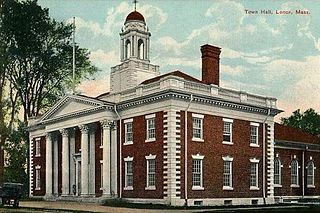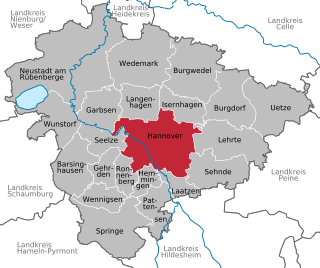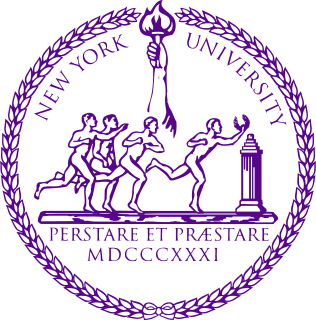
Flanders is the Dutch-speaking northern portion of Belgium and one of the communities, regions and language areas of Belgium. However, there are several overlapping definitions, including ones related to culture, language, politics and history, and sometimes involving neighbouring countries. The demonym associated with Flanders is Fleming, while the corresponding adjective is Flemish. The official capital of Flanders is Brussels, although the Brussels Capital Region has an independent regional government, and the government of Flanders only oversees the community aspects of Flanders life in Brussels such as (Flemish) culture and education.

Alexander Bain was a Scottish philosopher and educationalist in the British school of empiricism and a prominent and innovative figure in the fields of psychology, linguistics, logic, moral philosophy and education reform. He founded Mind, the first ever journal of psychology and analytical philosophy, and was the leading figure in establishing and applying the scientific method to psychology. Bain was the inaugural Regius Chair in Logic and Professor of Logic at the University of Aberdeen, where he also held Professorships in Moral Philosophy and English Literature and was twice elected Lord Rector of the University of Aberdeen.

Hippolyte Adolphe Taine was a French critic and historian. He was the chief theoretical influence of French naturalism, a major proponent of sociological positivism and one of the first practitioners of historicist criticism. Literary historicism as a critical movement has been said to originate with him. Taine is also remembered for his attempts to provide a scientific account of literature.
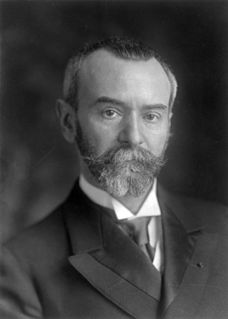
Jean Adrien Antoine Jules Jusserand was a French author and diplomat. He was the French Ambassador to the United States during World War I.
Dutch-language literature comprises all writings of literary merit written through the ages in the Dutch language, a language which currently has around 23 million native speakers. Dutch-language literature is the produce of Netherlands, Belgium, Suriname, the Netherlands Antilles and of formerly Dutch-speaking regions, such as French Flanders, South Africa, and Indonesia. The Dutch East Indies, as Indonesia was called under Dutch colonization, spawned a separate subsection in Dutch-language literature. Conversely, Dutch-language literature sometimes was and is produced by people originally from abroad who came to live in Dutch-speaking regions, such as Anne Frank and Kader Abdolah. In its earliest stages, Dutch-language literature is defined as those pieces of literary merit written in one of the Dutch dialects of the Low Countries. Before the 17th century, there was no unified standard language; the dialects that are considered Dutch evolved from Old Frankish. A separate Afrikaans literature started to emerge during the 19th century, and it shares the same literary roots as contemporary Dutch, as Afrikaans evolved from 17th-century Dutch. The term Dutch literature may either indicate in a narrow sense literature from the Netherlands, or alteratively Dutch-language literature.

Émile Louis Victor de Laveleye was a Belgian economist. He was one of the co-founders of the Institut de Droit International in 1873.
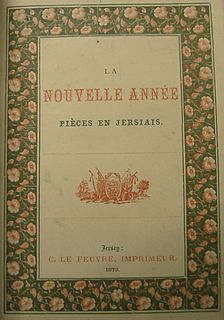
Jèrriais literature is literature in Jèrriais, the Norman dialect of Jersey in the Channel Islands.
Because Belgium is a multilingual country, Belgian literature is divided into two main linguistic branches following the two most prominently spoken languages in the country - Dutch and French. German is the third language in Belgium and is spoken by a small community of about 70,000 German-speakers of the German-speaking Community of Belgium bordering on Germany.
Flemish literature is literature from Flanders, historically a region comprising parts of present-day Belgium, France and the Netherlands. Until the early 19th century, this literature was regarded as an integral part of Dutch literature. After Belgium became independent from the Netherlands in 1830, the term Flemish literature acquired a narrower meaning and refers to the Dutch-language literature produced in Belgium. It remains a part of Dutch-language literature.
Gregory Michael Sarris is a writer and academic. Along with Sherman Alexie, Paula Gunn Allen, and Leslie Marmon Silko, Sarris is a notable contributor to the second wave of what literary critic Kenneth Lincoln has called the Native American Renaissance. Sarris’s best known work, Grand Avenue, is a collection of short stories about contemporary Native American life. Grand Avenue is a real place located in Santa Rosa’s South Park district and the stories are based on his own life. Sarris served as co-executive producer of the 1996 HBO miniseries adapted from Grand Avenue. The two part mini-series was shot entirely on location in Santa Rosa, California not far from where Sarris grew up.
Oliver Elton was an English literary scholar whose works include A Survey of English Literature in six volumes, criticism, biography, and translations from several languages including Icelandic and Russian. He was King Alfred Professor of English at Liverpool University. He also helped set up the Department of English at the University of the Punjab, Lahore, Pakistan.
Abbas Zaryab or 'Abbās Zaryāb was a historian, translator, literature Professor and Iranologist. He was the author of several books, including a life of Muhammad, and articles in The Persian Encyclopedia, Western peer reviewed Journals as well as Iranica.
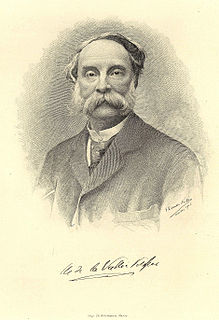
Charles-Louis-Joseph-Xavier de la Vallée Poussin was a Belgian geologist and mineralogist. His son was the mathematician Charles Jean de la Vallée Poussin.

Charles-Joseph de Harlez de Deulin was a Belgian Orientalist, domestic prelate, canon of the cathedral of Liège, and member of the Academie Royale of Belgium, who studied and translated the Zoroastrian holy texts.
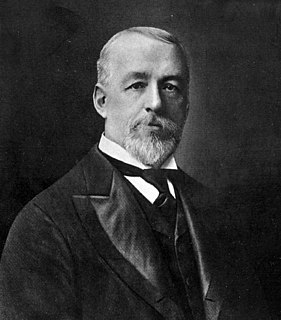
Alcée Fortier was a renowned Professor of Romance Languages at Tulane University in New Orleans. In the late 19th and early 20th century, he published numerous works on language, literature, Louisiana history and folklore, Louisiana Creole languages, and personal reminiscence. His perspective was valuable because of his French Creole ancestry; his family had history to the colonial period.
James Summers was a British scholar of English literature, hired by the Meiji government of the Empire of Japan to establish an English language curriculum at the Kaisei Gakuin.

August Hjalmar Edgren was a Swedish-American linguist, professor, and author.
Kenneth Morrison Roemer, a Piper Professor of 2011, Distinguished Scholar Professor, and Distinguished Teaching Professor at the University of Texas at Arlington. He received his B.A. from Harvard and his Ph.D. from the University of Pennsylvania. He is the author or editor of four books on utopian literature, including The Obsolete Necessity (1976), which was nominated for a Pulitzer by the Editor of the NY Times /Arno Press Utopian Collection, and three books on American Indian literatures, including the co-edited Cambridge Companion to Native American Literature (2005). His collection of personal essays about Japan, Michibata de Dietta Nippon (2002) (A Sidewalker’s Japan), was a finalist for the Koizumi Yakumo Cultural Prize. He initiated and continues to oversee the development of a digital archive of tables of contents of American literature anthologies Covers, Titles, and Tables: The Formations of American Literary Canons (www.uta.edu/english/roemer/ctt).
Alexander Jacob Schem was a German-American writer, editor and educator.
George Hilton Jones III, D. Phil (Oxon) (1924–2008) was an American Rhodes Scholar, historian, college professor, and author of numerous works on English history.

